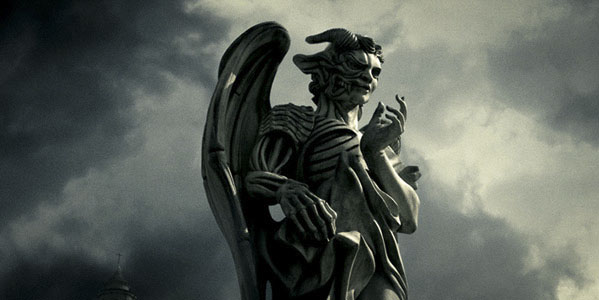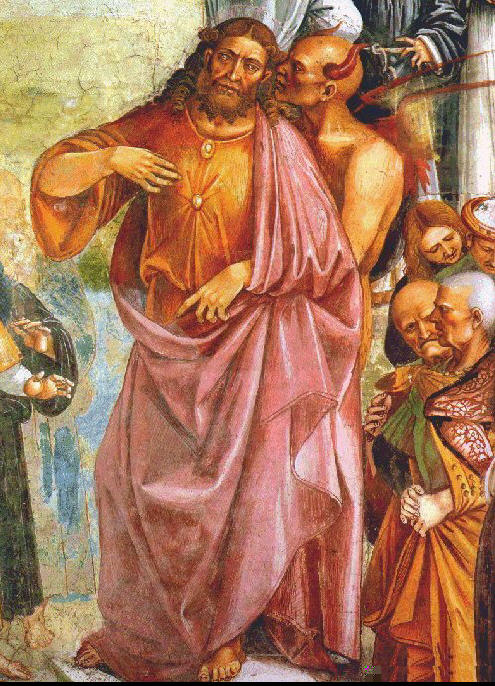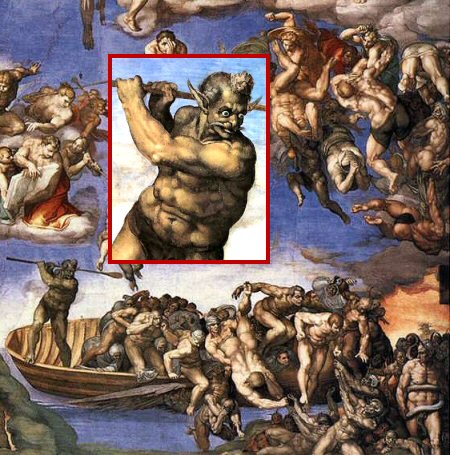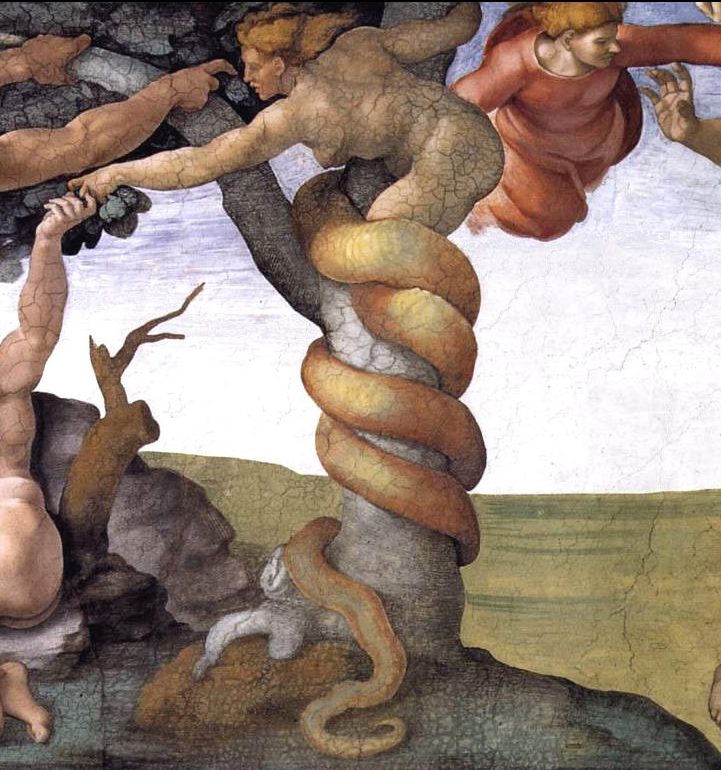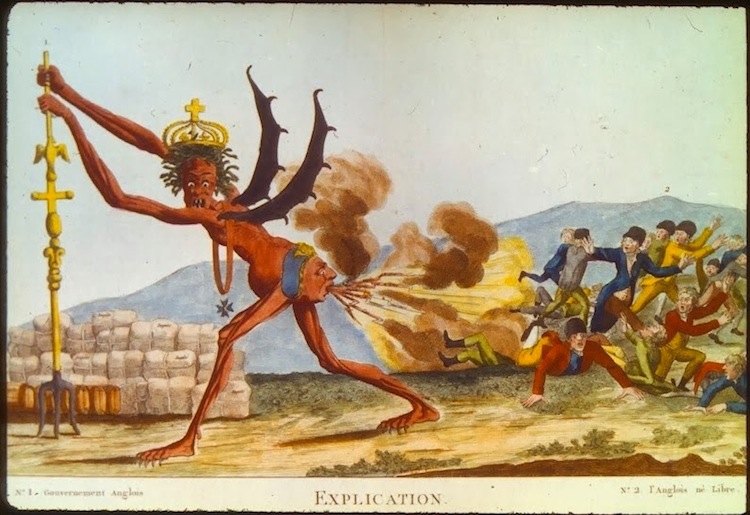And how could the author of the Book of Job know anything of the New Testament, when evidently he was utterly ignorant even of the Old one? There is a total absence of allusion to any of the patriarchs; and so evidently is it the work of an Initiate, that one of the three daughters of Job is even called by a decidedly “Pagan” mythological name. The name of Kerenhappuch is rendered in various ways by the many translators. The Vulgate has “horn of antimony”; and the LXX has the “horn of Amalthea,” the nurse of Jupiter, and one of the constellations, emblem of the “horn of plenty.” The presence in the Septuagint of this heroine of Pagan fable, shows the ignorance of the transcribers of its meaning as well as the esoteric origin of the Book of Job.
Instead of offering consolations, the three friends of the suffering Job seek to make him believe that his misfortune must have come in punishment of some extraordinary transgressions on his part. Hurling back upon them all their imputations, Job swears that while his breath is in him he will maintain his cause. He takes in view the period of his prosperity “when the secret of God was upon his tabernacles,” and he was a judge
Page 497
“who sat chief, and dwelt as a king in the army, or one that comforteth the mourners,” and compares with it the present time — when vagrant Bedouins held him in derision, men “viler than the earth,”
when he was prostrated by misfortune and foul disease. Then he asserts his sympathy for the unfortunate, his chastity, his integrity, his probity, his strict justice, his charities, his moderation, his freedom from the prevalent sun-worship, his tenderness to enemies, his hospitality to strangers, his openness of heart, his boldness for the right, though he encountered the multitude and the contempt of families; and invokes the Almighty to answer him, and his adversary to write down of what he had been guilty.
To this there was not, and could not be, any answer. The three had sought to crush Job by pleadings and general arguments, and he had demanded consideration for his specific acts. Then appeared the fourth; Elihu, the son of Barachel the Buzite, of the kindred of Ram.
Elihu is the hierophant; he begins with a rebuke, and the sophisms of Job’s false friends are swept away like the loose sand before the west wind.
“And Elihu, the son of Barachel, spoke and said: ‘Great men are not always wise . . . there is a spirit in man; the spirit within me constraineth me. . . . God speaketh once, yea twice, yet man perceiveth it not. In a dream; in a vision of the night, when deep sleep falleth upon man, in slumberings upon the bed; then he openeth the ears of men, and sealeth their instruction. O Job, hearken unto me; hold thy peace, and I shall teach thee WISDOM.’ ”
And Job, who to the dogmatic fallacies of his three friends in the bitterness of his heart had exclaimed: “No doubt but ye are the people, and wisdom shall die with you. . . . Miserable comforters are ye all. . . . Surely I would speak to the Almighty, and I desire to reason with God. But ye are forgers of lies, ye are physicians of no value!” The sore-eaten, visited Job, who in the face of the official clergy — offering for all hope the necessarianism of damnation, had in his despair nearly wavered in his patient faith, answered: “What ye know, the same do I know also; I am not inferior unto you. . . . Man cometh forth like a flower, and is cut down: he fleeth also as a shadow, and continueth not. . . . Man dieth, and wasteth away, yea, man giveth up the ghost, and where is he? . . . If a man die shall he live again? . . . When a few years are come then I shall go the way whence I shall not return. . . . O that one might plead for a man with God, as a man pleadeth for his neighbor!”

Moe is the founder of GnosticWarrior.com. He is a father, husband, author, martial arts black belt, and an expert in Gnosticism, the occult, and esotericism.

